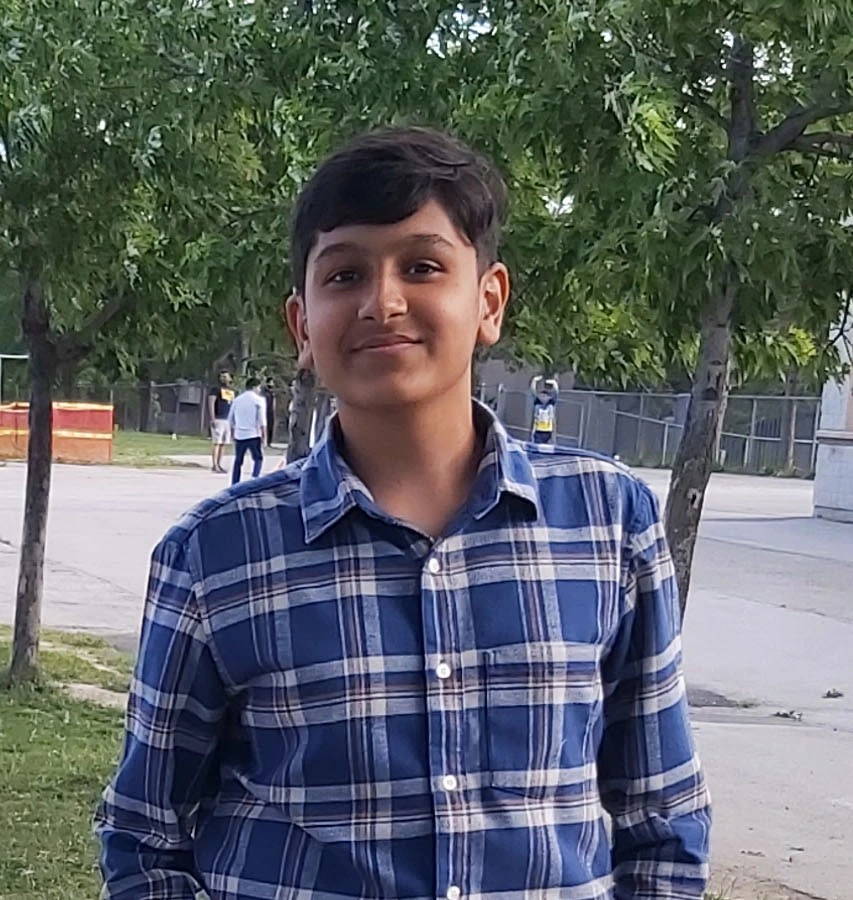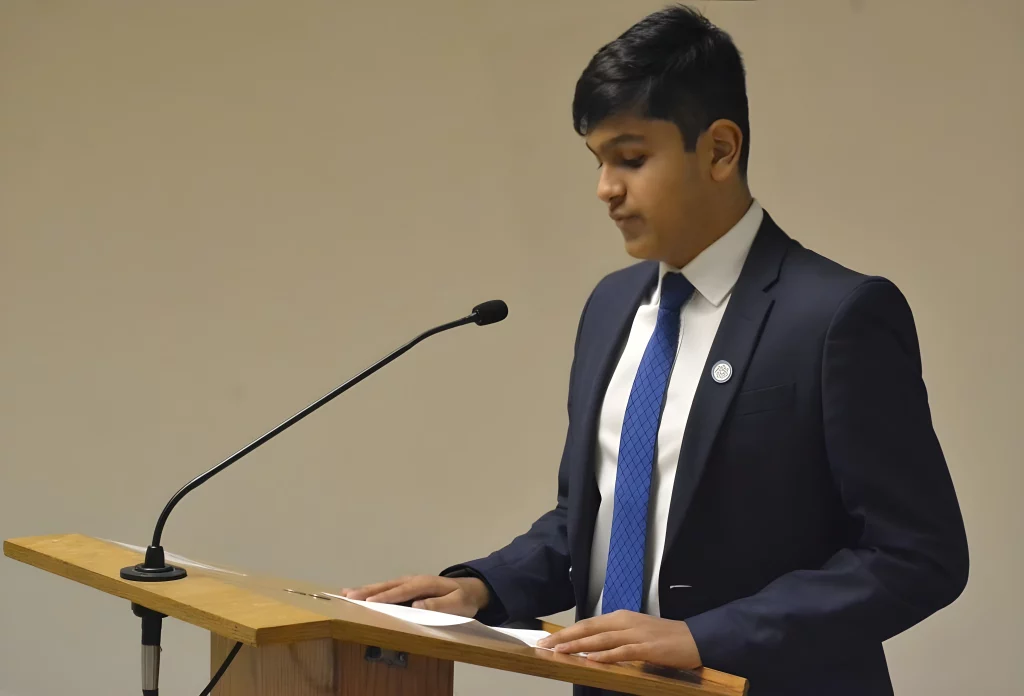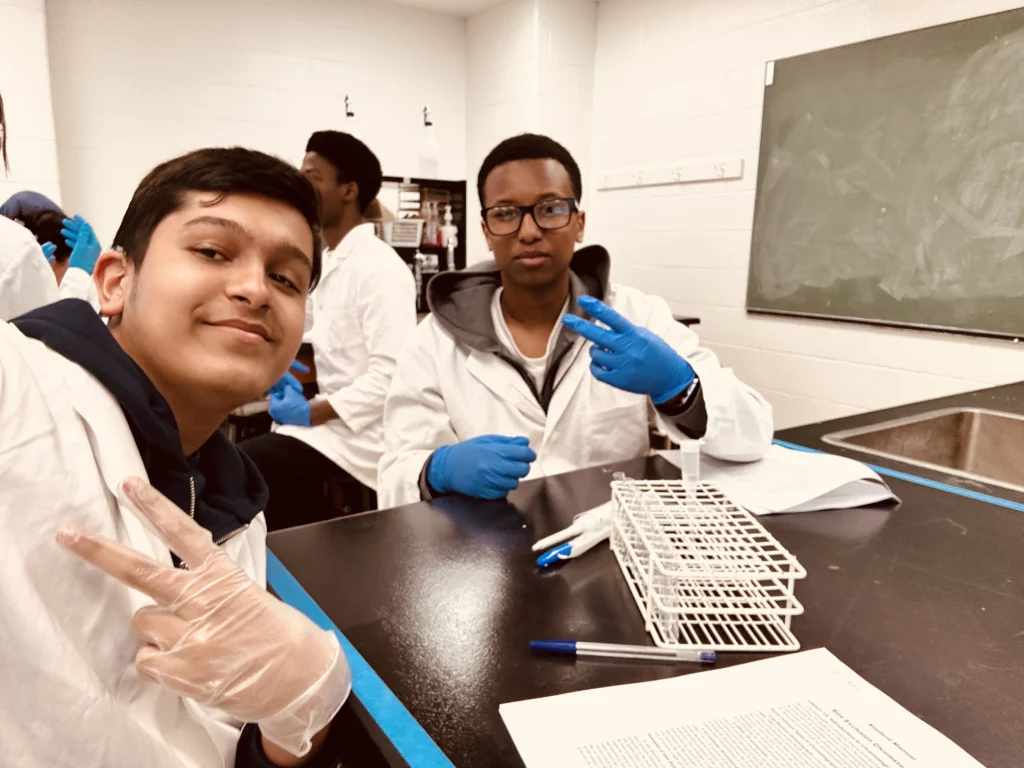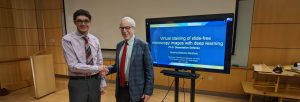(August 14, 2025) In Grade 9 at Glenforest Secondary School in Mississauga, Adil Mukhi kept hearing the same story from friends: they wanted to become doctors but didn’t know how to start. Some were unsure about medical school requirements, others didn’t know where to find mentors or build research experience. It struck him that, despite their ambition, they lacked guidance. That observation became the foundation for Dr. Interested, the youth-led community Adil created to make healthcare careers more accessible for students like his peers. “I started Dr. Interested after seeing too many youth struggle to navigate med school paths or build core skills like research and public speaking,” he later wrote on the organisation’s team page.
Building Dr. Interested
What started as a simple idea in a Mississauga classroom began to grow quickly once Adil put it into motion. In 2024, he invited a handful of classmates to join an online meeting to talk about medical careers. The discussion turned into a series of sessions, and soon students from outside his school were asking if they could join. By the following year, Dr. Interested had evolved into a global network, connecting teenagers in Canada with peers in countries as far away as India, Kenya, and the UK.

Adil Mukhi
According to the organisation’s own July 2025 impact report, the numbers now tell a remarkable story: 550+ members, more than 65 countries represented, and over 55,000 students engaged through its programmes. These include webinars with doctors and researchers, competitions where students present on health topics, writing contests that encourage clear science communication, and internships that pair members with mentors.
The reach is digital, but the impact is personal. In one early campaign, members created and delivered 375+ handwritten cards to nurses, a small but meaningful gesture that brought them face-to-face with the people they were learning about in their sessions. For Adil, these moments — where learning turns into action — are the real markers of success.
Balancing Study and Leadership
At Glenforest Secondary School, Adil’s days are full. Mornings are spent in the International Baccalaureate Middle Years Programme, where he maintains a weighted GPA of 5.33 — roughly a 96% average — before heading into afternoons filled with club meetings, project work, and sports practice. His teachers know him not only for his grades, but for the steady way he juggles roles across campus.
He serves in leadership positions with the STEM Fellowship Chapter and the French Club, helps steer the IB Student League, and finds time for HOSA, DECA, the Eco Club, AV Crew, Peer Helpers, and the Writers Guild. On the tennis court, he’s represented Glenforest all the way to the regional quarter-finals.
Outside school hours, much of his time goes into volunteering — more than 400 hours so far — with organisations such as Results Canada, HEAL for Health, Medicine4Youth, and the Ismaili Volunteers. It’s a mix of academic focus and community engagement that keeps him moving between classrooms, meeting rooms, and community centres, guided by the personal motto he shares on his website: “With curiosity as my guide, I will never go wrong.”


Advocacy and Writing
Away from the club meetings and school activities, Adil has found another way to make an impact — through his words. Public health is a recurring theme in his writing, and he has used op-eds and letters to the editor to spark conversations on issues that matter to young people. In one letter published in The Fulcrum, he described vaccination as “a global imperative for a healthier future,” urging policy-makers and communities alike to prioritise immunisation. His articles, written in both English and French, have addressed topics ranging from child welfare to climate-related health challenges.
That ability hasn’t gone unnoticed. In 2025, Results Canada presented him with its Outstanding Youth Award, recognising his dedication to advocacy. Looking back, Adil credits the organisation with sharpening his skills: “One of the most important things I learned was how to write and research better, especially when I was writing letters to the editor.” For him, advocacy is not just about raising awareness — it’s about building the skills to communicate clearly, connect with diverse audiences, and inspire action.
Cultural Roots and Community
Adil’s Indian heritage is a quiet but steady influence in his work. At home, traditions from his family’s roots in the Indian subcontinent blend naturally with his Canadian upbringing. In the community, he gives time as a Junior Team Lead with the Ismaili Volunteers, helping organise local events and service projects. That spirit of seva — selfless service — shapes how he approaches leadership, whether he’s coordinating a youth workshop or collaborating on a health awareness campaign. For Adil, heritage is less about formal declarations and more about the values it instils: commitment to learning, care for community, and a belief in lifting others as you move forward.
The Broader Picture
Canada’s Indian diaspora is one of the country’s fastest-growing and most visible communities, now numbering over 1.8 million people. While earlier generations established themselves in business, healthcare, and academia, a new wave of youth leaders is shaping the country’s civic and educational landscape. These young people are not only excelling in school and professional training, but also creating platforms that reach far beyond their immediate communities.


Youth-led initiatives like Dr. Interested reflect this shift. By combining strong academic performance with volunteerism and digital engagement, young Indian-origin Canadians are building bridges between cultures and across borders. Many draw on the values of service, community support, and educational excellence passed down through their families, while also embracing Canada’s encouragement of innovation and leadership in youth.
Adil’s work is a clear example. His network is global in reach, yet rooted in the peer-to-peer support ethic common in diaspora families, where older students or professionals mentor those just starting out. In building an organisation that supports aspiring healthcare professionals from over 65 countries, he reflects a broader trend: diaspora youth using digital tools and cultural capital to influence sectors like health, education, technology, and environmental advocacy.
This blend of cultural heritage and modern leadership is helping to position Indian-origin youth as a pivotal force in Canada’s future — not just in traditional career paths, but in shaping the conversations, connections, and opportunities available to the next generation.
Looking Ahead
Still in high school, Adil continues to run Dr. Interested alongside his studies, writing, and volunteering. The network now has its own leadership teams and programmes, but he remains closely involved. His focus stays the same — stay curious, share knowledge, and create spaces where young people can learn from each other.
- Follow Adil Mukhi on LinkedIn
ALSO READ | Jasraaj Singh: Embracing the road less travelled in Australian rural medicine




